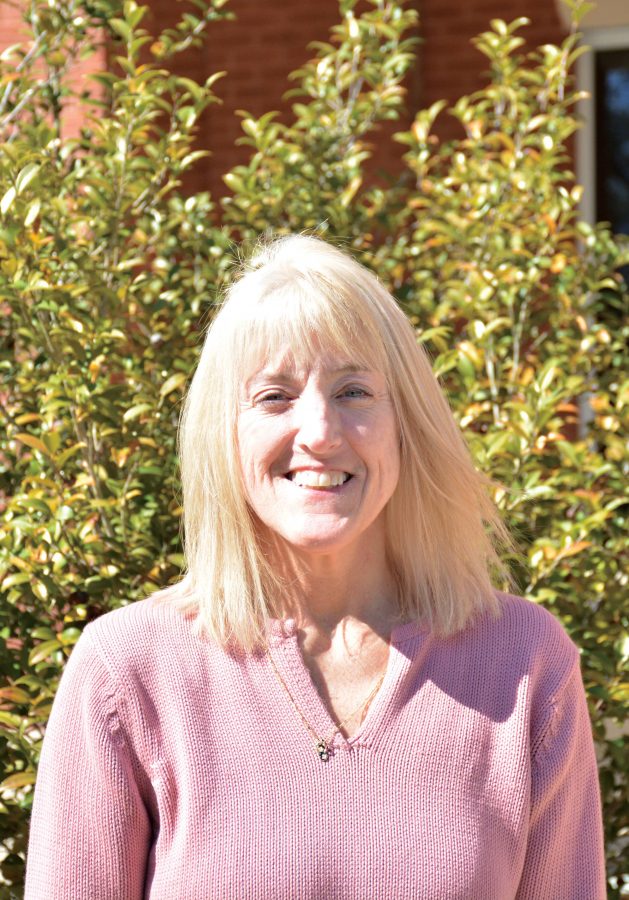Professor Spotlight: Dorie Weaver
Photo by: Chris Sousa
Professor Dorie Weaver works to enhance inter-professional relations to better the quality of patient’s medical care.
For nursing professor Dorie Weaver, classes don’t end when she leaves FMU’s campus each day. In addition to teaching long hours in nursing classes and simulation labs, Weaver is currently working toward a large milestone in her career: her Doctorate of Nursing Practice (DNP).
Despite Weaver’s love for teaching and her current clinical work as a certified family nurse practitioner (FNP), she said she felt that earning her DNP would be a benefit in both her academic and professional lives.
“I’m one of those people that just loves school,” Weaver said. “After I complete my DNP project, I plan to take more classes to be specialized in mental health care and really get back in the field. But for right now, I’ve had to cut back on clinical work to focus on my project.”
She said her current project deals with the enhancement of inter-professional relations and how to make these relations better to help with the quality of a person’s medical care and the work environment as a whole. In short, her project researches the ways in which different types of professionals work together in the same environment. Weaver said that these types of relationships can help define any type of working space.
“It’s all about communication,” Weaver said. “Many different types of professionals working together don’t usually know what each other type of professional can do. This leads to a lot of miscommunication. This can be true in a classroom setting, too.”
Weaver has connected her life as a student and her life as a professor by implementing her DNP project at college campuses, including FMU. Many nursing students at FMU have been using Weaver’s inter-professionals relations enhancement model in their simulation labs. Weaver said that when students and professors are working together in the simulation labs to practice and perform medical procedures, it’s important for every person in the lab to be aware of the strengths of others and to be able to communicate well.
Also, by using her enhancement model, Weaver believes that students are given a brief taste of what it’s like working in a professional field and can eventually take the communication skills learned with them into the medical field. While it is interesting and fun to see her project taught and used on college campuses, Weaver said that her main concern with this implementation was that students could really use what she has learned to be the very best nurses and workers that they can be.
“I really care about my students, and I want them to know that,” Weaver said. “So it’s important to me that they’re getting what they need from these classes and their teachers to thrive in the medical field. It’s a really tough job, and my students are really tough to be doing what they are in these classes.”
Unfortunately, Weaver said that her devotion to her students and to her own academic work keeps her from enjoying many hobbies outside of the classroom. While Weaver is a relatively new member of the FMU faculty, she has already gotten involved on campus, especially in the nursing department. Weaver currently serves on three academic boards and committees at FMU and has recently applied to serve on a fourth. Also, she is serving as an advisor to an FMU nursing student currently working on an extensive honors project.
Since Weaver’s time as a student is quickly coming to an end, she said she is looking forward to getting back to her clinical work but still prefers teaching.
“I really enjoy what I get to do as a teacher,” Weaver said. “I do enjoy my clinical work, too. But, with teaching, I get to take what I’ve learned both in clinical settings and in classrooms to teach others and to help them grow as nurses and medical professionals.”
